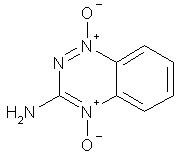PHILADELPHIA -- SRI International's Biosciences Division, a unique organization that operates as a research-driven pharmaceutical and biotechnology company, a technology incubator, and a full-service preclinical contract research organization, celebrates 50 years of drug discovery and development contributions. SRI's current research and development (R&D) pipeline includes drugs for cancer as well as cardiovascular, central nervous system, and infectious diseases and conditions. SRI will discuss several of the company's innovations at the BIO 2005 show in booth #519.
Since the 1950s, SRI's Biosciences Division has helped to develop more than 100 drugs in clinical trials or on the market. SRI partners with pharmaceutical industry leaders, emerging biotechnology companies, and government agencies to discover and pursue lead compounds and to advance the research of therapeutics and vaccines. SRI is also working to discover the molecular bases for sleep disorders, which could lead to improved treatments for insomnia, jet lag, age-related sleep disturbances, fatigue, and narcolepsy.
"In the last 50 years, SRI has provided its clients with a broad range of research and development services in the life sciences," said Walter H. Moos, vice president of SRI International's Biosciences Division. "During this time, SRI has delivered on its commitment to serve as a premier provider of resources in what has come to be known as translational medicine -- from idea to IND and beyond -- repeatedly demonstrating our ability to deliver the highest quality products to a diverse and impressive client base."
A Legacy of Innovation
In the 1970s, SRI developed halofantrine for the U.S. Army as a treatment for drug-resistant malaria. Distributed by the World Health Organization (WHO), the drug has saved countless lives. The Food and Drug Administration (FDA) approved halofantrine as an antimalarial in 1992 under the SmithKline Beecham (now GlaxoSmithKline) brand name, Halfan(R).
SRI has also had a long association with the National Institute of Allergy and Infectious Diseases (NIAID). Since 1991, SRI has been the sole contractor for the preclinical safety testing of drugs for the treatment of many infectious diseases, including acquired immunodeficiency syndrome (AIDS), tuberculosis, malaria, and sexually transmitted diseases.
New Cancer Drugs
Drugs for the treatment and prevention of cancer have been an R&D thrust for the SRI Biosciences Division since its inception. Bexarotene was discovered at SRI and is marketed for cutaneous T-cell lymphoma. SRI has more than a dozen cancer drugs in R&D, including:
Tirazone(R) (tirapazamine) has selective toxicity against hypoxic cells that have low oxygen levels and are associated with resistance to standard chemotherapy. This drug has been licensed to Sanofi-Synthelabo Inc., a member of the Sanofi-Aventis Group, for further development and marketing. PDX (pralatrexate), a dihydrofolate reductase (DHFR) inhibitor jointly discovered with Southern Research and Memorial Sloan Kettering, is being developed by Allos Therapeutics, Inc., as a cancer chemotherapeutic. TAS 108 (SR 16234), synthesized at SRI, is licensed to and being developed in the field of oncology by Taiho Pharmaceutical Co., Ltd.
Long-term Partnerships
SRI has conducted biomedical research under National Institutes of Health (NIH) sponsorship for more than 50 years, beginning in the early 1950s with grants from the National Cancer Institute (NCI). SRI continues its work as a long-time Large Resource Contractor to various parts of NIH for the preclinical development of drugs and vaccines for NIH grantees. SRI provides preclinical development services for cancer therapeutics, cancer vaccines, and chemo-preventative agents to NIH grantees. SRI has won NCI Rapid Access to Interventional Development (RAID and RAPID) awards for the preclinical development of a novel cancer treatment and for the development of a cancer prevention drug.
SRI's integrated program offers medicinal chemistry, molecular and cell biology, immunology, pharmacology, pharmacokinetics, pathology, toxicology, engineering, and information technology expertise to solve problems and create value. SRI's comprehensive drug development capabilities, including Investigational New Drug (IND) preparation for filing with the FDA and overseas regulatory agencies, are designed to expedite the preclinical R&D process.
About SRI's Biosciences Division
SRI's Biosciences Division (www.sri.com/pharma) is a unique organization that operates like a research-driven pharmaceutical and biotechnology company, a technology incubator, and a full-service preclinical contract research organization, with all of the resources necessary to take chemical and biological discovery and development programs from "idea to IND". More than 10 therapeutic products have been advanced to human clinical trials based on internal research conducted in SRI's Biosciences Division.
Through collaboration with other divisions at SRI, Biosciences is also creating technical platforms for the next generation of drug discovery in areas such as bio-computation and real-time diagnostics. Biosciences' preclinical contract research organization (CRO) services include basic research, target validation, lead discovery and optimization, radiochemical synthesis, in vitro and in vivo efficacy testing, formulation, in vitro toxicology screening, good laboratory practices (GLP) safety pharmacology and toxicology, pharmacokinetics, metabolism, good manufacturing practices (GMP) work with clinical trial materials, quality assurance, and IND preparation and submission.
About SRI International
Silicon Valley-based SRI International (http://www.sri.com) is one of the world's leading independent research and technology development organizations. Founded as Stanford Research Institute in 1946, SRI has been meeting the strategic needs of clients for nearly 60 years. The nonprofit research institute performs contract research and development for government agencies, commercial businesses and nonprofit foundations. In addition to conducting contract R&D, SRI licenses its technologies, forms strategic partnerships and creates spin-off companies.
COPYRIGHT 2005 Business Wire
COPYRIGHT 2005 Gale Group



